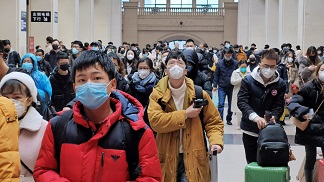

Updated on: June 6, 2022, 5:06 p.m.
Published on: June 27, 2016, 4:36 a.m.
Cambodian Real Estate Market Challenges, with Kim Heang on Realestate.com.khTV
Every industry has its stories of successes and shortcomings. The real estate and property investment industry in Cambodia has certainly had lots of those - and has developed a lot alongside its victories and it's rising from past failures.
This is the same reason why it is regarded as the rising tiger of Asia: Strong in its approach and wiser with each controversy and distress, the property and land markets have seen significant growth in the past years.
But there remains challenges that it must overcome to reach its maximum potential.
In a speech for fellow professionals and enthusiasts in the Real Estate Market & Outlook Conference (REMOC) 2016, president of CVEA and CEO of Khmer Real Estate, Mr. Kim Heang, addresses some of the challenges for the land, condo, borey, factory and warehouse markets.
Should Foreigners Be Allowed to Buy Land in Cambodia?
He states that Cambodia is fortunate enough to have laws and policies in place that restrict foreigners from buying land. Unlike countries that do not, Cambodia is reaping the benefits of this policy through stable investment opportunities for locals. Heang explains that if foreigners are allowed to buy properties in Phnom Penh, the whole of Phnom Penh would soon become a giant Chinatown, since the Chinese represent the largest population of investors right now in the area.
He adds, "I don't want to be the last Cambodian to live in Cambodia."
But even if laws to allow foreigners to purchase land may be possible in the future, Heang clarifies that now is not the right time for that.
Where to Invest Now?
Heang suggests that if you are looking to buy land for investment returns right now, buy from areas like BKK1 that have 25 years of reliable investment history and established amenities like hospitals, schools, market places and offices. This area is perfect for buyers looking for residential spaces.
But if you’re willing to wait and place your money for longer and for a bigger return, and plan on doing resale in the next five years, properties in areas like Toul Kork might show better potential for that purpose. He also mentions it is cheaper to invest in condominiums being built in Toul Kork now, because more established areas like BKK1 are heavily influenced by the very high land prices.
Heang adds that people looking for investment returns in the next ten years would be best to buy properties outside Phnom Penh itself, in the outer districts, or up to 15 to 20 km away from it.
Condo Oversupply?
At present though, there are around 20,000 condominium units expected to reach completion by 2018. While there is a concern that there may be an excess of units, Heang suggests that the condominium market will have plenty of demand in the coming years since the Phnom Penh population is expected to rise rapidly as well. And though foreign investors are not allowed to buy land from Cambodia, if the government can get foreign investors interested in Cambodia, it would not be unreasonable to double or triple the amount of units that Phnom Penh already has to offer and still find sufficient demand. This can be achieved through friendlier and more efficient investment policies being put in place by the Government.
Property Development Advice:
But Heang notes that for property developers, the condo market is now becoming highly competitive and condominiums may not remain practical for long-term living in the city because of the traffic and congestion issues growing in central areas. For that reason, Heang suggests that developers should consider moving to areas on the edges of the city and supplement the local market demand for more landed Borey projects.
Preselling also becomes an issue in terms of condominium developments because many developers now cannot afford to buy the land for development outright - so instead loan for this land payment from financial institutions. While it’s not bad to get a loan for the development, many investors are unable to reach their target market during presales and get the necessary support to start construction- as they don’t have upfront capital reserved for construction. Heang advises against allowing this kind of practice throughout the industry due to the potential pitfalls this can cause.
Industrial Property Still Strong:
But while the condominium market remains unpredictable, industrial spaces such as factories are becoming even more popular for investors in Cambodia because of the relatively low minimum wage for workers that still exists in the Kingdom. Investors have also become wiser, transferring their factories to less expensive areas to save on overhead costs.
Heang concludes by saying, “the future of real estate in Cambodia? What is the future? Nobody knows. No one knows about the future." He says that problems are everywhere and it is important that you have a solution-based mindset.
In a highly volatile industry where even the smallest problems can lead to the biggest changes, professionals in the industry must be able and ready to adapt.





Comments